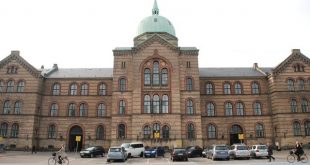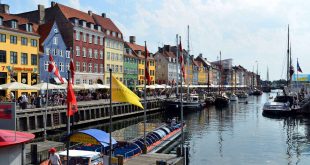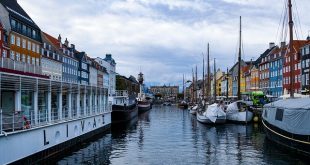Your quest for knowledge and academic excellence can take you to pursuing a Ph.D. in Denmark. The academic landscape of this Scandinavian gem offers an environment that is both enriching and comforting for aspiring scholars. However, the path to realizing this dream comes with questions and uncertainties. The pain point? Navigating the complex admission process, understanding the research opportunities, or even adjusting to a new cultural and educational setting abroad. In this comprehensive guide, we intend to walk you through the intricacies of pursuing a PhD in Denmark. We will provide you with invaluable insights and actionable information to help you achieve this noble academic aspiration.
Table of Contents
Why Choose Denmark for Your PhD?
The Danish higher education system has been around for over 500 years. It has therefore contributed to many important discoveries and inventions, like quantum theory and Lego. At the present time, the Danish government is investing more in higher education to produce well-qualified PhD researchers.
Additionally, Denmark has some good reasons to be considered for your doctorate this year:
- Universities have excellent research and development facilities, which are highly ranked worldwide.
- Most students from the EEA, EU, Switzerland, or those with a residence permit don’t have to pay tuition fees.
- Denmark welcomes international students by offering free Danish language classes.
Once you get your PhD, you’ll have the chance to work in Denmark without a visa. This is even more sure if you’re from the EU, EEA, or Switzerland. And there are opportunities for other international students too. All in all, Denmark is an excellent place to think about for your PhD studies.
Overview of the Higher Education Landscape in Denmark
Denmark boasts an esteemed education system known for being excellent and research-focused. However, not all the 4 types of institutions offer PhD programs, so it’s important to know your options.
- Business Academies: are for a shorter academic commitment. They offer programs that typically span 1.5 to 2.5 years. These courses aim to equip students with practical skills and knowledge that can be applied directly in the professional world.
- University Colleges: are for medium-cycle programs. Known as academy profession programs, these courses strike a balance between theoretical learning and hands-on experience. The goal is to prepare students for various careers.
- Universities: offer long-cycle programs. It’s the place to go to pursue first-cycle Bachelors, second-cycle Masters, and third-cycle PhD programs. For international students who plan to do their PhD in Denmark, there are at this time eight universities to choose from.
- Institutions for Arts Education: provide long-cycle programs in disciplines such as architecture, design, film, fine arts, music, and performing arts. Their purpose is mainly to nurture students’ creativity and artistic skills.
Structure of PhD Programs in Denmark
A doctoral degree in Denmark is a third-cycle qualification, aligning with the Bologna Process framework adopted across Europe. However, a Danish PhD possesses distinct characteristics that set it apart from others.
One notable feature is the integration of industrial links, enriching the educational experience and offering students a diverse range of training opportunities.
In addition to coursework, students have to gain teaching experience and disseminate their research findings through presentations and publications. Many universities in Denmark provide teaching courses and guidance to help students meet this requirement.
Furthermore, students are encouraged to broaden their horizons by conducting research both within and beyond their institution. In this case, they might take part in collaborations with industries or universities abroad.
Duration: Three Years of Rigorous Study
The Danish academic year operates on a unique schedule, comprising two semesters. It usually begins in August/September and concludes in May/June. The typical duration for a full-time Danish PhD program is therefore three years, a standard maintained since 1993. This three-year commitment necessitates a prior five-year Master’s program in the same or a closely related discipline or equivalent qualifications.
Integrated Master’s: the Flex Process
Denmark also provides flexibility through the option of embarking on an integrated Master’s and PhD program. It’s what they call the “Flex Process.” This alternative allows students to start their journey either 12 months into a Master’s program (4+4 scheme) or immediately upon completing a Bachelor’s degree (3+5-scheme).
Additionally, under special circumstances, part-time PhD studies are feasible through a formal application process. However it applies only if candidates hold professional qualifications equivalent to PhD studies.
The Danish PhD Process
In Denmark, when pursuing a PhD, you’ll work within the European Credit Transfer System (ECTS), as per the Bologna Process. Therefore, to earn your PhD, you must accumulate a total of 180 credits. This means you’ll need to complete a few important tasks.
Firstly, within the initial three months, you’ll have to create and get approval for your study plan. This should outline the courses you’ll take and your proposed research.
Secondly, you’ll have to craft your thesis. It should demonstrate your skills in applying scientific methods relevant to your subject. It should as well meet the international standards for PhD research in your field.
The next crucial step is passing the viva, a public defense where you present your work. The viva takes place in front of an evaluation panel comprising two academics from outside your institution and one from abroad. All should be renowned researchers in your field. Additionally, your thesis should be made public before this defense.
Supervision
Upon enrollment, each student is basically assigned an official academic supervisor. They must be a recognized expert in the field of the student’s research project. These supervisors play a pivotal role in guiding the PhD journey.
Their mission is mainly to help students develop their study plan, and ensure their active participation in the requisite courses. Moreover, the supervisor will regularly evaluate the student’s progress ensuring they stay on track and making adjustments as necessary so they successfully complete the program.
Understanding the PhD Application Process in Denmark
The application process in Denmark is much like the process in the UK. Therefore just like in the UK, you will need to apply for PhD programs via advertised projects and scholarships. This offers you the choice of either applying for an opportunity with a pre-defined research topic or proposing your research ideas. This second option allows you to tailor your PhD journey to your interests and ambitions.
Requirements
In Denmark, each institution has its unique admissions criteria. However, a recognized Master’s degree in a relevant subject is a common requirement. There are exceptions for those without a Master’s, where the PhD typically spans 4 years, as the candidate must complete a Master’s program during the PhD period.
Qualifications Equivalence and Recognition
To pursue a PhD in Denmark, your previous qualifications must have rcognition as comparable to Danish entrance qualifications. Usually, you can determine the equivalence of your qualifications in Denmark, using an official assessment service. This will ensure a smooth transition into the Danish academic landscape.
Language Proficiency
Denmark’s higher education system is highly internationalized, with numerous degree programs taught in English. For non-native English speakers, demonstrating proficiency in English is crucial. You can therefore prove your language skills through standardized tests like IELTS, Cambridge Advanced English (CAE), or TOEFL.
Native English speakers usually don’t need these documents. However, for those pursuing Danish programs, proficiency in Danish is essential. This also can be verified through specific language tests.
Application Procedure
The application process for a PhD in Denmark can vary depending on the institution. It is advisable to contact the specific institution for exact details and deadlines.
However, in most cases, you will be required to submit certain documents. This includes academic transcripts, a statement of purpose, a research proposal (if applying to a program without a predefined project), and references from academic mentors who have previously worked with you.
Some universities may also require that the issuing institution send directly your academic documents. However, this process can take several months.
Interviews
In some instances, universities in Denmark may require interviews as part of the admission to PhD programs. In this case, these interviews are typically conducted via Skype and involve 2 to 3 professors. The questions may revolve around your project proposal or other academic topics. Preparing for this interview is essential to showcase your readiness and suitability for the program.
PhD Fees and Funding in Denmark
The cost of tuition for a PhD in Denmark is usually contingent on your nationality. For EU/EEA/Swiss students, higher education in Denmark, including PhD courses, is entirely tuition-free. It can happen that foreign students may also qualify for free tuition under specific circumstances, which include:
- Holding a permanent residence permit
- Possessing a temporary residence permit that can be upgraded to a permanent one
- Holding a residence permit as the accompanying child of a non-EU/EEA individual with a residence permit based on employment.
For students who do not meet these criteria, tuition fees will apply. The exact fee structure can vary, and it’s advisable to contact your institution for precise details. But in general, non-EU/EEA students can expect to pay an annual tuition fee ranging from €6,000 to €16,000.
Read here our overview of the cost of studying and living in Denmark.
PhD Scholarships
International students who pursue a PhD in Denmark can benefit from funding avenues provided by the government or by private organizations. These opportunities include a range of scholarships as well as funding programs tailored to support students through their academic journey.
Here are some names to check out:
- Studentships: Universities, research institutions, and businesses often advertise studentships that extend over a three-year period.
- Danish Government Scholarships Under the Cultural Agreement: These long-term scholarships are available to students from Brazil, China, Egypt, Japan, South Korea, as well as summer Danish language courses for the previously mentioned countries and 35 European countries.
- Danish Government Scholarships for Highly Qualified Non-EU/EEA Students: The Danish government allocates a limited number of scholarships each year to fund exceptionally qualified students from non-EU/EEA countries and Switzerland. You can apply for these scholarships directly at your chosen institution.
- Nordplus: Funding opportunities under Nordplus enable students at Nordic or Baltic institutions to pursue their studies in another Nordic or Baltic country as part of their degree program.
- Fulbright Commission: US citizens can benefit from funding opportunities that support an entire academic year of study and research in Denmark.
Additionally, some universities in Denmark have their own funding and financial support initiatives for foreign students. To understand the available assistance and eligibility criteria, we recommend you check with your school. Read also our review of the best scholarships in Denmark.
PhD Salary
In some instances, universities in Denmark provide support to PhD students in the form of a monthly salary. This employment arrangement implies that you will be under a contract until the completion of your thesis. For example, a PhD student working at the University of Copenhagen typically earns 32,567 Danish Krone (around 4,370 EUR) per month on average.
It is advisable to consult with your department to check whether this applies to your specific situation. This salary-based scheme can significantly alleviate the financial burden of pursuing a PhD in Denmark.
Conclusion
The choice to study in Denmark is one that promises not only academic excellence but also a rich and fulfilling life experience. In this complete guide, we have unveiled for you all the remarkable opportunities that await PhD students in this beautiful country. It’s up to you now to take the steps and start your journey in the enchanting world of Danish academia!
This post is also available in fr_FR.




 Aljawaz Your guide to study abroad
Aljawaz Your guide to study abroad















